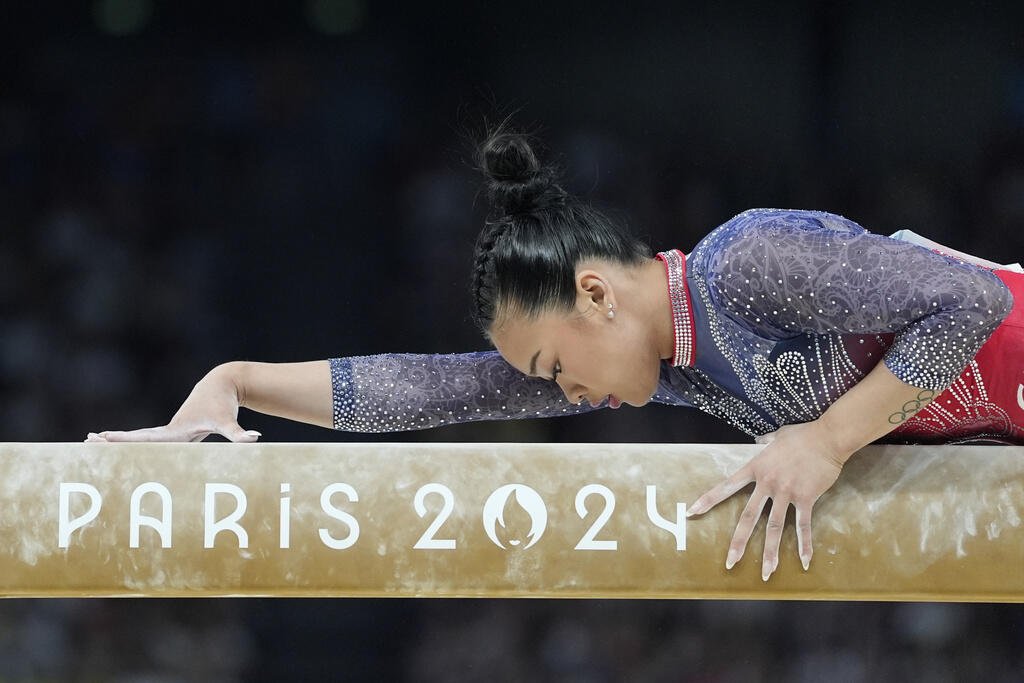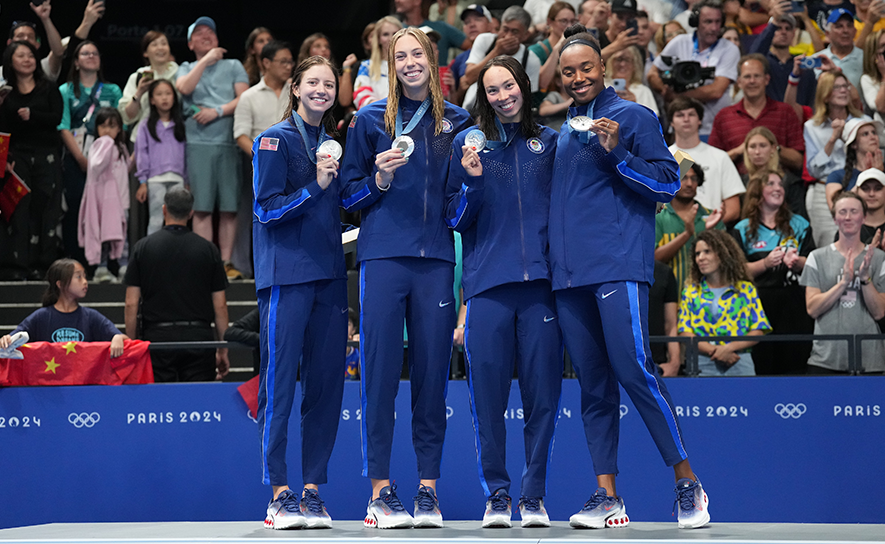Paris Olympics 2024
The 2024 Summer Olympic Games are in full swing with over 10,500 athletes from 206 nations all across the world participating. The opening ceremony took place on the Seine, where the athletes from the various countries stood on the decks of parade boats cruising down the famous river. Traditionally, the athletes had been introduced in the Olympic stadium. There were mixed reviews from that break in tradition.
The opening festivities were, to say the least, controversial, as one might expect from the French, but my enthusiasm for the games was not dampened. The men and women who are competing in these games have trained their entire lives for this unique moment to test their athletic prowess against the best in the world. Their spirit of comradery, competiveness and the excitement written on their faces far outweigh any disappointment I might have had with how the games began.
When we see these remarkable men and women on television, we can’t help but admire their athletic abilities. Their coordination, strength, speed, agility, and stamina have been sharpened to such a high level, they almost appear superhuman. But these freaks of nature weren’t born with superhuman powers. Only after years and years of dedication, hard work, and discipline did they achieve their amazing skills.
In fact, I’d be willing to wager (if I did that sort of thing) that virtually every one of these amazing athletes has experienced periods of discouragement and even failure. To see them as they compete, we may not be able to appreciate the hardships they have endured to become the best in the world, but each athlete has a story. No one makes it to the mountain top without adversity.
I am enthralled by Stephen Nedoroscik’s story. He is a gymnast who helped the men’s team to win a bronze medal for Team USA, the first medal the United States has won in the team competition in 16 years. Stephen only competes in one event, the pommel horse, and because the pommel horse was the last event of the evening, he had to wait a number of hours before he was given the opportunity to demonstrate his skills. The U.S. was fighting against several other countries for a place on the medal stand and the competition was fierce. If Nedoroscik could nail his specialty, the U.S. would win the bronze.
Before Nedoroscik’s turn came, the cameras caught him apparently napping, wearing thick glasses, seemingly oblivious to how his teammates were performing. When I first saw him, I thought, “And this is who we are counting on to help us win the bronze? He looks more like a geek than an athlete. He should be in the library, not the gym!”
I was so wrong! He was taking everything in and was completely focused on his team. He was breathing consciously, trying to calm his anxiety, and concentrating on his routine. He had trained his entire life for this one event.
But I was not wrong about the nerdy part. He is an intellectual. Stephen graduated from Penn State with a degree in electrical engineering in 2020. That alone is an accomplishment, but what I didn’t know is that Stephen has an eye disease known as strabismus. Strabismus, or crossed eyes, requires Stephen to wear glasses to see clearly. At one time he wore prescription goggles when he performed but found that he really didn’t need them because the pommel horse was more about feel than sight.
The partisan U.S. crowd waited anxiously for Stephen’s turn. Would he show that he was an Olympian? Would he prove that he deserved his special spot on the U.S. team?
The answer came within seconds. As soon as he began his routine on the pommel horse, there was no doubt he came to win. He nailed it! His teammates were delirious with joy and happy for their special teammate. The United States won the bronze!
The women were not without their heroes in gymnastics as well. The women’s team failed to win the gold medal in the 2020 Tokyo Olympics and was looking to prove that they were the world’s best.
When the battle for first was still up for grabs, the U.S. gymnast, Jordan Chiles, fell off the balance beam, resulting in a lower score. Although she performed flawlessly after her fall, there was pressure on the next team member, Suni Lee, to keep the team in contention for the gold medal. If she had a substandard routine, the U.S. would be in danger of falling behind the tough competition from Italy, Brazil, and Great Britain.
To see Suni Lee’s physical appearance one would immediately think that this young woman is a superior athlete. Since she was a child she has trained countless hours, depriving herself of the amusements other young people her age enjoy. What many viewers didn’t know, however, was that just a few months earlier Lee’s entire athletic career was in serious jeopardy.
Last winter, she woke up one morning with swollen feet, hands, and face. Her body was retaining huge amounts of fluid, increasing her weight by almost 30 pounds. After consulting a number of doctors, she was dismayed to discover she had an incurable kidney disease.
Fortunately, medication helped to control the problem, but Suni still had to regain her conditioning and confidence in a relatively short time to even make the Olympic team. And now America’s hope for a gold medal rested squarely on the shoulders of a young woman who only months earlier wasn’t even sure she would be in the Olympics.
To add suspense to the drama, the balance beam has to be one of the most nerve wracking events in all of sports. Can you imagine performing, doing backward flips and other acrobatics, on a less than 4 inch wide beam that is a little over 4 feet high? I can’t. My palms get sweaty just thinking about it.
Suni Lee came through with flying colors, one of her best performances ever, according to one expert analyst. The joy on the faces of her teammates brought a tear to my eye, and the happiness of her parents in the stands made all their years of encouragement and devotion well worth it.
I’m sure that most of these Olympic athletes have experienced difficulties that threatened their careers. When we see them on television, we see only their superhuman like performances. But they are not superhuman; they are just like the rest of us, but have paid an incredibly high price to achieve their success.
As an American, I am proud when an athlete from the U.S.A. climbs the medal podium. But what I really hope for is that every athlete, regardless of the country, will have their best performance to show the world how talented and skilled they are.
The Olympics bring countries together, and that is one reason why they are so important. I was in awe when the greatest woman’s gymnast of all times, Simone Biles, cheered for her fiercest rival from Brazil. That’s sportsmanship! The more we learn about other people, whose cultures, languages, and religions are different from what we know, the more we can appreciate them as part of the incredible mosaic that makes up our world. We learn that our commonalities are far greater than our differences, and while competition is healthy and necessary, cooperation is the key to the future of our human race—the one race we can’t afford to lose.







